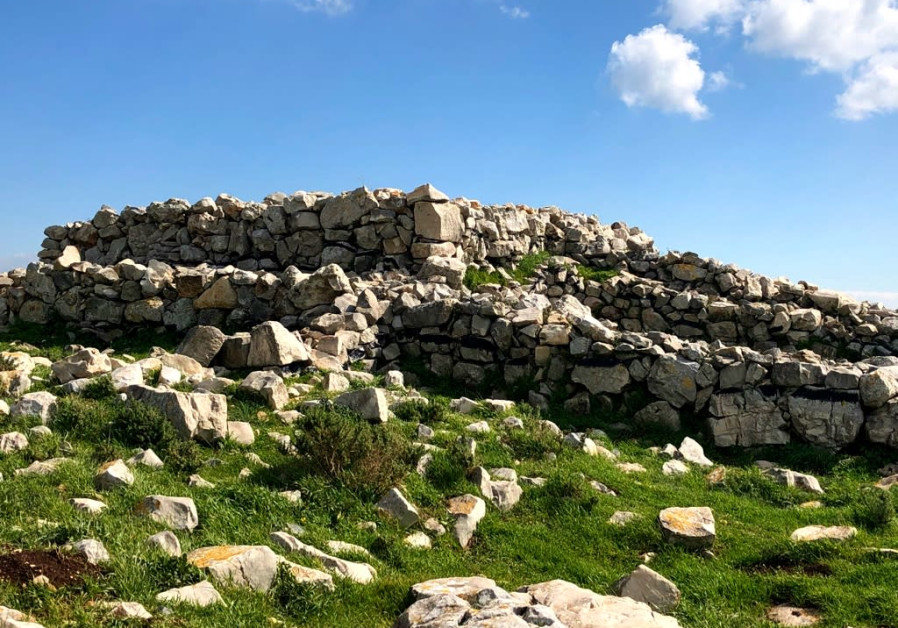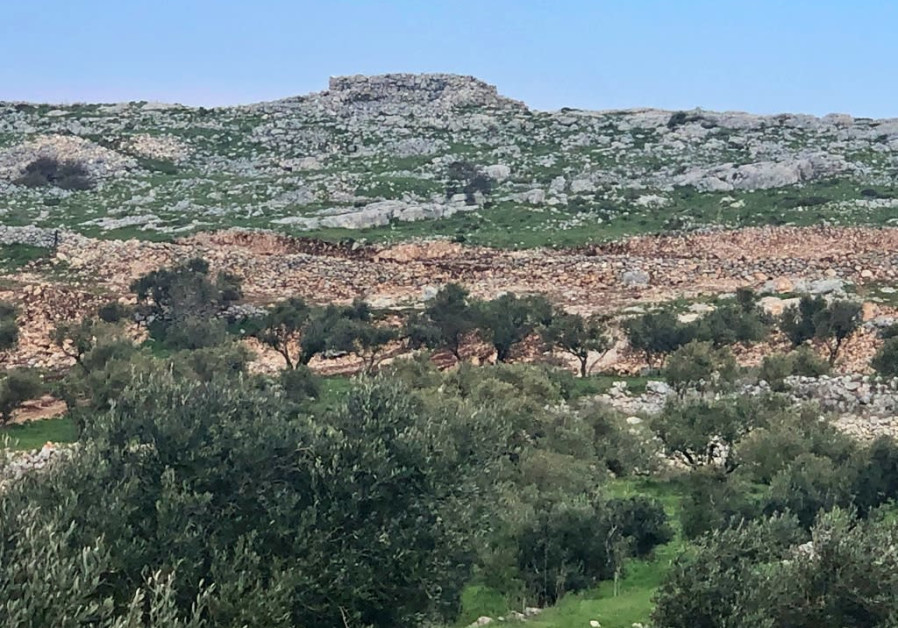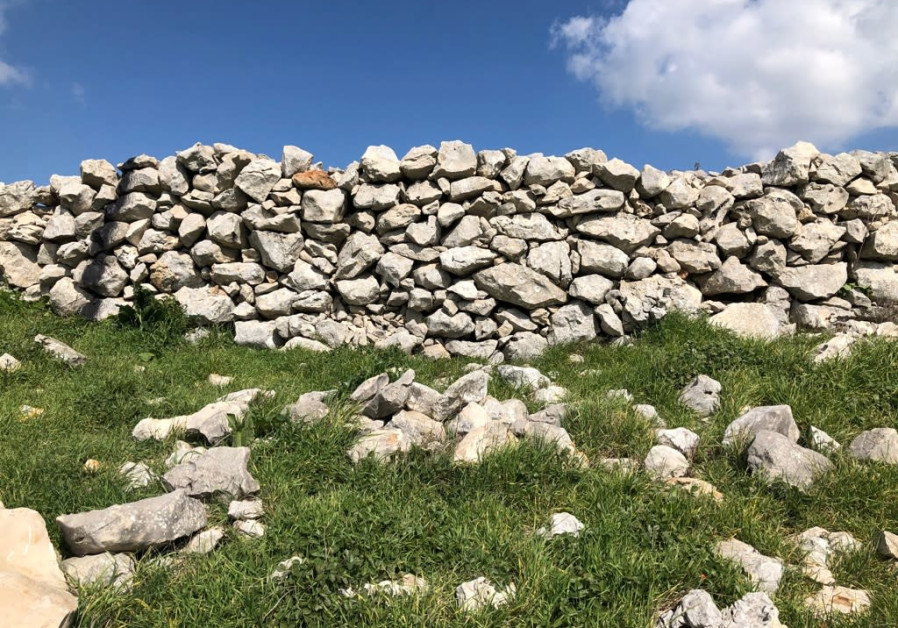
The site is not fenced off. Nor are there any signs denoting that this pile of rocks thousands of years ago served as an altar where Joshua sacrificed animals to God.
Unlike the Western Wall or the Tomb of the Patriarchs, the exact location of the altar was unknown until it was unearthed by University of Haifa archeologist Adam Zertal in 1980.
Zertel’s claim that this was Joshua’s Altar was never universally accepted. Moreover, its location in Samaria placed it in the heart of the Israeli-Palestinian conflict and kept the site from development as an archaeological park.
Earlier this month, however, a municipal Palestinian work crew hauled rocks from an exterior biblical-era wall surrounding the altar for use in paving a road. The outcry over the harm caused to the site refocused attention on the altar from the Iron Age, and re-sparked calls by the Israeli Right to transform it into an archaeological park.
Among those who have picked up the gauntlet is Likud MK Uzi Dayan, who is also a former head of IDF Central Command.

“It is not even marked as an archaeological site,” Dayan told The Jerusalem Post on Monday. It was not mentioned under the Oslo Accords of 1993 and 1995, which set up the governance of the West Bank that has lasted until today, he added.
When he was head of Central Command, Dayan said, he considered Joshua’s Altar to be part of Area C of the West Bank, which is under IDF civil and military control.
But changes to the map has now placed it in Area B of the West Bank, under the auspices of the Palestinian Authority.
Defense Minister Benny Gantz has clarified that he considers the site in Area B.
Dayan has asked to meet with IDF officers to clarify the reclassification, with the hope that it can once more be considered part of Area C.
Regardless of its location, Israel must find a way to protect and preserve the area as an archaeological park, he said.
Dayan has in mind the example of Qasr al-Yehud in the Jordan Valley, which is both Jesus’ baptismal site and the place where the Jews crossed the Jordan River into Israel after wandering 40 years in the desert.

Two decades ago, the area was a closed military zone that could be opened only with special permission. Now it is a national park that attracts close to a million visitors annually.
Dayan is joined in his battle by Samaria Regional Council head Yossi Dagan, Foreign Affairs and Defense Committee chairman Tzvi Hauser, who is now part of the New Hope Party, and the right-wing archaeological group Shomrim al Hanetzach, which initially discovered the damage.
Hauser, who wants to hold a committee meeting on the issue, has been banned by Gantz from bringing members of the Foreign Affairs and Defense Committee to the site.
Dagan said this was just one of a number of archaeological sites over which there is a battle between Israel and the PA for control.
He and Dayan, who together visited the site on Sunday, stood near where damage had been done to the wall. The earth-colored stones, where the wall had been rebuilt, stood out in contrast to the gray biblical-era portions of the wall.
The politicians are blunt about their belief that Joshua’s Altar should eventually be under Israeli sovereignty. But beyond that, they said, there is also an issue of preserving Jewish history and the archaeology of the Jewish people.
According to Yonatan Mizrachi, of the left-wing archaeological group Emek Shaveh, the area is “not significant,” and at best one could have a nice view of the area.
The issue here is political, he said, adding that there are many other sites of higher values that need to be preserved, including ones with ancient altars.
Archeologist Aharon Tavger of Ariel University cited a letter sent last week to Gantz by 50 archeologists that spoke of the site’s significance.
One could argue whether Joshua stood here, he said, but there is no argument that the site is a unique example of an altar from the Iron Age.
